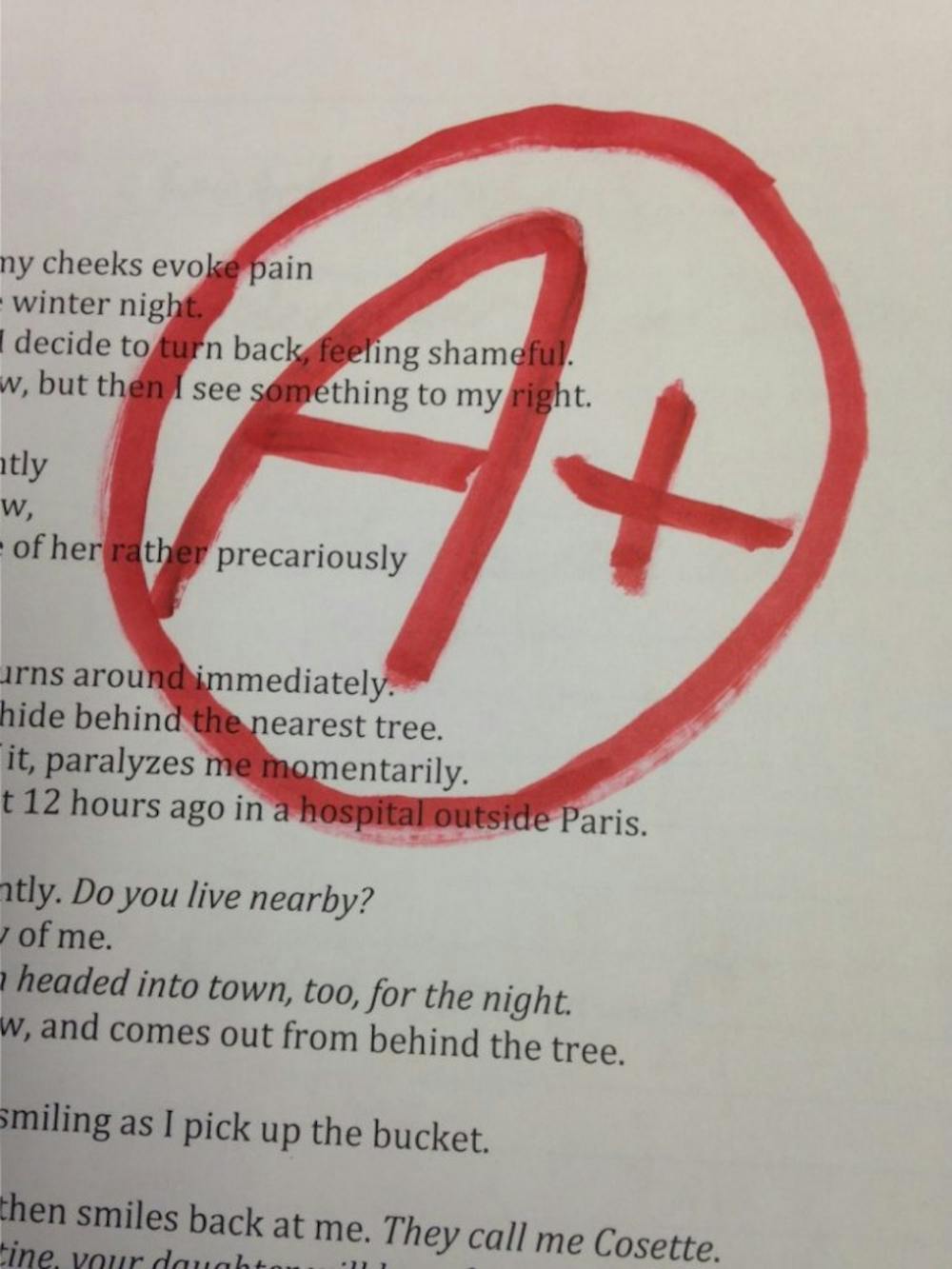It has almost become a cliché to call on fellow Hopkins students to relax and tone down the high-strung competitive environment for which Hopkins has become infamous. In October, the satirical publication The Black and Blue Jay published “Johns Hopkins Ranks 1st in U.S. News’s ‘Most Soul-Crushing Universities,’” which fooled many a commenter into thinking it was a real ranking. Earlier this year, Jason Plush stepped down from his position as SGA executive president, citing the overwhelming amount of work he had and how much it affected his health in a brave opinions piece.
But change does not happen overnight, and I still see my friends pulling all-nighters and freaking out about being accepted into programs with minuscule acceptance rates, tweeting about the intensely competitive nature of being a pre-med student and agonizing about graduate programs years before they need to, all the while sacrificing their health and happiness.
In grade school, I learned about the basic needs of survival: food, water, shelter, air and sleep. Luckily, Brody and the library show no signs of oxygen depletion anytime soon and are pretty sturdy buildings, but the other basic needs seem to be lacking amongst my peers. Drinking only coffee to stay awake, sacrificing full meals and not sleeping are (shockingly) not healthy habits.
Because we are a research institution and most of my friends are majoring in something to do with science while I spend my days in Gilman, I expect my peers to listen to data and logic. Multiple studies have been done about the severe negative effects of sleep-deprivation and all-nighters: an increase in body mass index; impairment of attention, short and long-term memory and decision-making; and decreased mental health. Pulling an all-nighter can actually lower the chance of a good grade more than forgoing studying and sleeping at least part of the night since short-term memory is impaired and recall of class material is much more difficult. And yet, even when my pre-med friends and roommates know the damage that all-nighters and sleep deprivation can cause (mainly through the articles I force them to read), they continue these habits, knowingly sacrificing their physical and mental health for a grade.
Of course, I am not immune to the trap of fretting over grades and internships. However, I think we as a student body need to remember the bigger picture (another cliché, but a necessary one). Of course college and graduate school and internships are important to our future and our families. But once we put our self-worth in the hands of grading systems and excruciatingly low acceptance rates, we not only do ourselves a great disservice but also unintentionally stumble into a pit of elitism.
My value as a person does not depend on my education, the fact that I am privileged enough to attend college or whether I fail or ace a test. I value myself as an intelligent person and strive to value that intelligence outside of what institutionalized parameters dictate — a task at which I fail constantly. I know plenty of intelligent, kind people who did not go to college or get passing grades, and the minute we place a person’s (even our own) value on their ability to succeed inside the impossibly rigid boundaries of academia, we do them a major disservice.
Historically and presently, universities and academic environments have not been the friendliest — and in fact have been outright hostile — to people of color, LGBTQ people, disabled people, neurodiverse people, women and of course the people that live at the intersections of these identities. Arash Daneshzadeh, a doctoral researcher and professor of education at the University of San Francisco, wrote in his article “Academic Imperialism & Inoculating Spaces of Black Excellence” that “Education, as an epicenter to society’s ecological nervous system, is the hub that sends and receives its messages from powers that reinforce and aim to dispatch these [white-supremacist, capitalist, patriarchal] hierarchies.” When we filter our value through the standards of the societal epicenter of education sets, we also filter our value through racist, sexist and ableist standards. Daneshzadeh writes about how our society defines achievement and success by asking, “achievement: according to whom? And ‘under’ what so-called universal frame of reference can achievement possibly be assessed?”
Even though I am proud of my achievements (all Hopkins students should be proud of themselves), I try to remind myself that my value as a person does not lie in As or Bs or my identity as a Hopkins student. I am no more or less valuable than anyone with better or worse grades, a ‘harder’ major, more or less degrees or a great internship, and I try not to sacrifice my health to achieve institutional levels of value, though I do fail in my attempt often. As Hopkins students, we should ask ourselves why we feel so compelled to put our physical and mental health in jeopardy for the sake of grades — even in the face of overwhelming data telling us why we shouldn’t. We should also ask ourselves why we place so much value on institutional definitions of success and achievement. Change is incremental, but hopefully we can shift into a healthier environment.
Emeline Armitage is a sophomore International Studies major from Cleveland.





